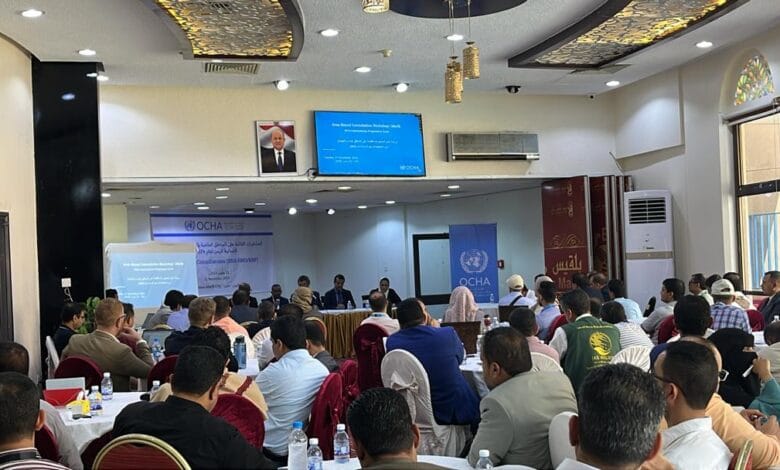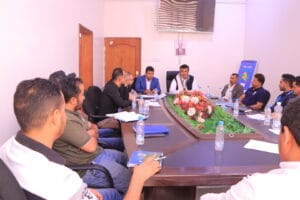

There was two separate meetings, the first meeting was between the governorate undersecretary, Dr. Abdurabu Muftah and OCHA Office with humanitarian parteners. The second meeting was between the director of Ex. U. IDPs, Saif Mothana and the coordinator of Camp Management Cluster and its partners, in a huge step to enhance the permanent Humanitarian Response and to discuss the preparations of the upcoming consultative meeting about making the humanitarian Response Plan of 2024&2025.
Both meetings revolved around the main topics that will be included in the HRP and identifying IDPs & refugees’ basic needs including nutrition, shelter, healthcare and education.
The meetings also discussed the means of joint cooperation enhancement and exchanging information between partners in order to achieve high level of HR effectiveness. These plans will be prepared based on comprehensive analysis of ongoing situation and future expectations of humanitarian needs.
The HRP is expected to contain rapid response strategies in humanitarian emergencies, and recommendations to enhance cooperation between partners and providing permanent financial system for humanitarian projects.
Local Authority and Executive Unit believed that both meetings are a golden opportunity to coordinate efforts and exchange experiences between concerned partners, hoping that the upcoming meeting will lead to create a comprehensive HRP for the next two years. Moreover, it will improve the capability of dealing with upcoming humanitarian challenges also effectively and permanently meet the needs of refugees and IDPs.
The upcoming meeting will be scheduled later on w will revolve around making the humanitarian Response Plan of 2024&2025. Then, the plan will be implemented in co-operation with involved partners and international organizations.
Amid the continuance of humanitarian challenges, Local Authority and Executive Unit tend to enhance cooperation and coordination in order to ensure implementing permanent, ingenious and efficient response that aims to improve IDPs’ lives and provide necessary support for individuals who are affected by armed conflicts, disasters and internal displacement.
Furthermore, they carried on improving and implementing strategies that aim at Humanitarian Response improvement and enhancing the ability to adapt to the challenges, and they confirmed that the two-upcoming years will be an opportunity to create positive change and provide IDPs necessary support.
Finally, they looked forward to the continuance of fully cooperation and mutual partnership which will serve the improvement in the field of Humanitarian Response and fulfilling positive impact on the affected IDPs as well as host community.